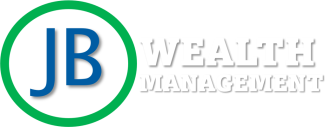Business Retirement Planning
A range of retirement plans are available to address the retirement needs for you, your business and your employees. Business retirement plans can offer tax-deductible contributions and tax-deferred growth opportunities. For people age 50 or above, many of these plans provide a catch-up contribution option.
Determining what business retirement plan and structure is best for your business can be an intimidating task. We work with Plan Sponsors to ensure the plan is organized for your business, culture, and employees and that the educational support and investment choices are well aligned. We review Investment documents and can act as a fiduciary on the plan, in either a 3(21) or 3(38) capacity. We also help business owners explore how a retirement plan can help lower taxes.
Plans can offer an array of investment options: mutual funds, exchange traded funds, self-directed brokerage accounts or professionally managed accounts. Investment options vary by plan type.
401(k) Plan
JB Wealth Management works with several 401(k) plan providers to help you select the solution that best meets your business needs. In general, a 401(k) plan:
- Allows employers to make pre-tax contributions up to 100% of eligible compensation (annual contribution maximum determined by the IRS)
- Allows employee salary deferral contributions
- Can include an employer matching contribution
- May provide employees the options for loans and Roth (after tax) deferrals
Individual 401(k) Plan or Solo(k) Plan
A Solo(k) plan is an individual 401(k), designed for self-employed individuals to help maximize retirement savings. The Solo(k) plan:
- Is available to business owners, partners and their spouses
- Has the same contribution limits as a regular 401(k) plan but simplified, lower cost administration
- Allows for loans and Roth deferrals
- Allows the owner to contribute as an employee and as the employer
SEP IRA & SIMPLE IRA
The creation of the Simplified Employee Pension (SEP) and the Savings Incentive Match Plan for Employees (SIMPLE) affords smaller businesses with a way to offer their employees a retirement plan. The SEP and SIMPLE were designed for businesses with less than 100 employees and y are less costly to administer than a 401(k). For the employees, they are both easy to understand and provide a convenient way to save for retirement.
As qualified retirement plans, SEPs and SIMPLEs enjoy the same tax treatment as other plans. Contributions by employees and employers are tax deductible or made on a pre-tax basis. The accumulation inside the accounts grows tax deferred. The many of the same restrictions apply as well. Withdrawals made prior to age 59 ½ may be subject to a penalty.
As with all defined contribution plans, the future retirement benefit is uncertain as it depends on the amount of contributions, how long they accumulate, and the rate of return on the account over that period of time. At the time of distribution, withdrawals are taxed as ordinary income with no allowance for 10-year averaging as is available through a 401(k).
Simplified Employee Pension (SEP)
A SEP is easy to setup even easier to administer. Each employee established their own SEP-IRA to which the employer contributions are made. Although the employer is not required to make a contribution each year, when one is made it must be contributed to all employees over the age of 21, part-time included, based on 25% of covered compensation.1
The employees manage their own SEP-IRAs which can be invested in mutual funds, money market funds, or fixed investments. The funds are always 100% vested so they can be accessed immediately by the employee (subject to an early withdrawal penalty). Employees with SEP-IRAs can also invest in their own traditional or Roth IRA subject to some income limitations.
For employers, their only responsibility is to make the contribution by their tax filing deadline. There is no administration of the accounts and there is no forfeiture provision to manage.
Savings Incentive Match PLan for Employees (SIMPLE Plan)
In a SIMPLE Plan, employees establish their own IRA to which they can electively make tax deductible contributions. Employees who earn at least $5,000 during any two prior years as well as the current year are eligible to participate on a voluntary basis. The maximum amount that can be contributed in 2023 is $15,500 or 100% of their compensation whichever is less. 2
Employee funds are 100% vested, however, in addition to the normal early withdrawal penalty of 10%, if a withdrawal is made within the first two years of participation, the penalty is 25% unless any exceptions apply.
The employer must match the employee’s contributions up to 3% of their elective deferral, or 2% of all compensation for all employees whether they defer or not. 3
There is another version of a SIMPLE called the 401(k) version which is structured much like the IRA version. The advantage of the 401(k) version to the employer is that it can establish stricter requirements for plan eligibility which could reduce the amount of matching contributions. The disadvantage is that the same ERISA reporting rules apply to a SIMPLE 401(k) as they do the regular 401(k), so it can be more costly to administer.
For additional information on small business retirement plans, contact us today.
1 Contributions are limited to 25% of an employee's compensation or $66,000 for 2023.
2 $15,500 is the current maximum and the amount is indexed for inflation.
3 An employer may make less than the 3% contribution for two years out of five year period but it cannot be less than 1%.

